Having survived the pandemic, which car makers coped best after this latest bump in the road?
The SMMT recently reduced its new car sales forecast for 2022 to 1.57 million. That’s back to where we were in 1982, when the Ford Escort was the market leader, and more than one million sales down on the all-time peak year of 2016.
Alfa Romeo – no change
2021 market share: 0.10%, 2022 market share: 0.10%
Neither the Giulia nor Stelvio is likely to exceed 1000 sales this year. There is a revival plan, but Alfa Romeo announces those with the same frequency as the UK does new prime ministers…
Alpine – up
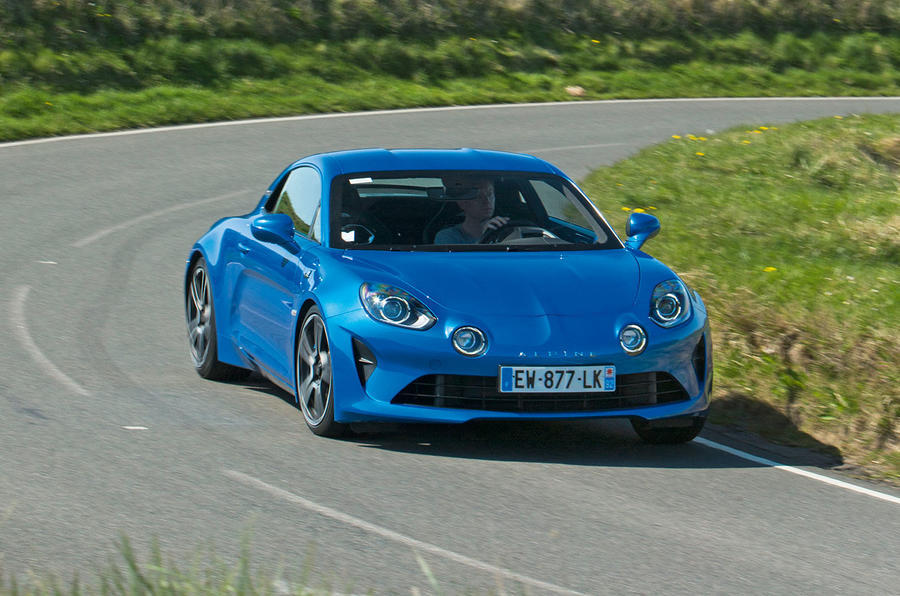
2021 market share: 0.01%, 2022 market share: 0.02%
The A110’s share has grown and is probably now as high as a sports car from an obscure brand can expect in these SUV-obsessed times.
Aston Martin – up
2021 market share: 0.06%, 2022 market share
0.07% Despite raising £654 million in funding this year, Aston Martin debt has risen, due to losses of £511m. Global DBX SUV sales have actually fallen this year.
Audi – down
2021 market share: 7.16%, 2022 market share: 6.81%
Most conventional models are being affected by supply-chain issues. However, the Audi E-tron models are up by only 12.7% compared with 23.4% for all EVs, which is more disappointing.
Bentley – up
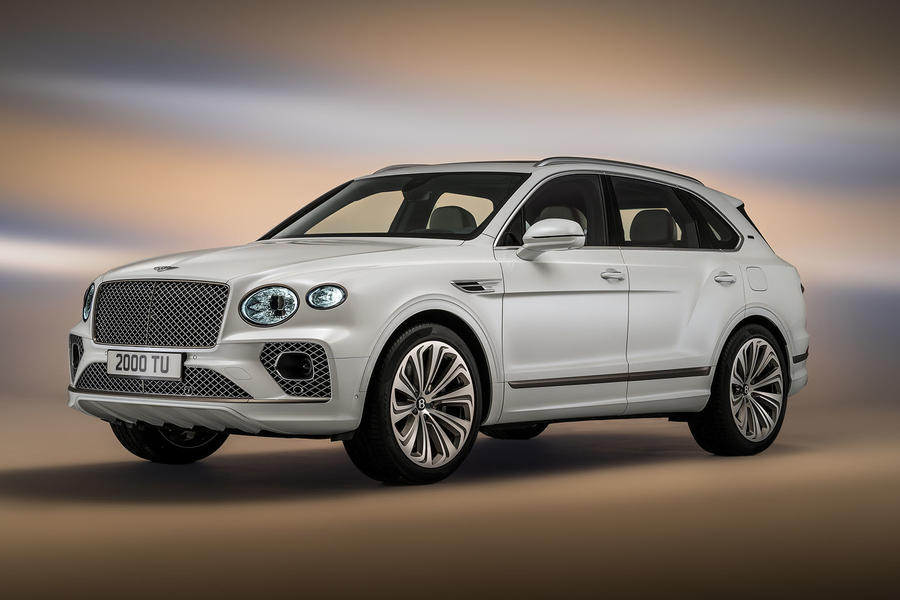
2021 market share: 0.08%, 2022 market share: 0.10%
This is a record market share for Bentley, coming with record global profits. It made more than £500m in the first nine months of 2022, representing a profit margin of 23%.
BMW – down
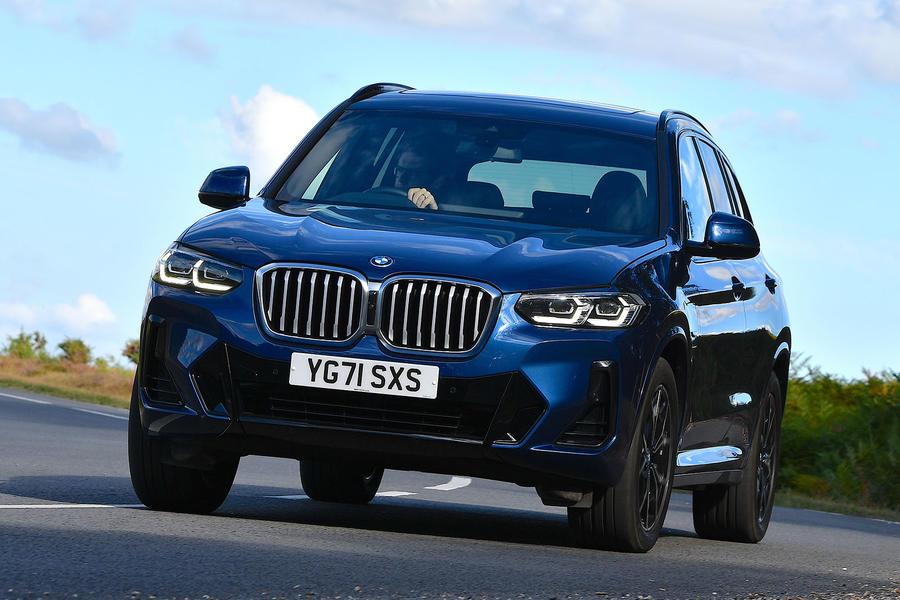
2021 market share: 7.08%, 2022 market share: 6.67%
Like Audi, BMW has dropped slightly. A sign of the times is that the 45-year reign of the BMW 3 Series as the brand’s best-seller could be nearing its end, as the X3 is rapidly catching up.
Citroen – up
2021 market share: 1.83%, 2022 market share: 1.85%
Citroën’s best-selling models are the C3 supermini and C4 family hatchback. It needs to get with the programme and boost its sales of all-important crossovers.
Cupra – up
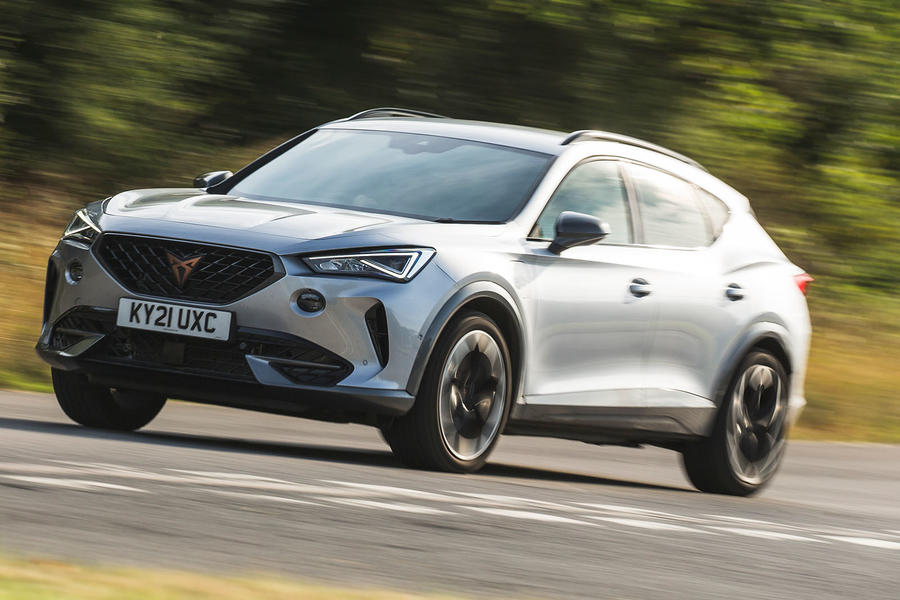
2021 market share: 0.46%, 2022 market share: 0.89%
0.89% Cupra is doing brilliantly – unless you work for its sibling brand, Seat. The Formentor is successfully occupying a niche between mainstream and premium crossovers.
Dacia – up
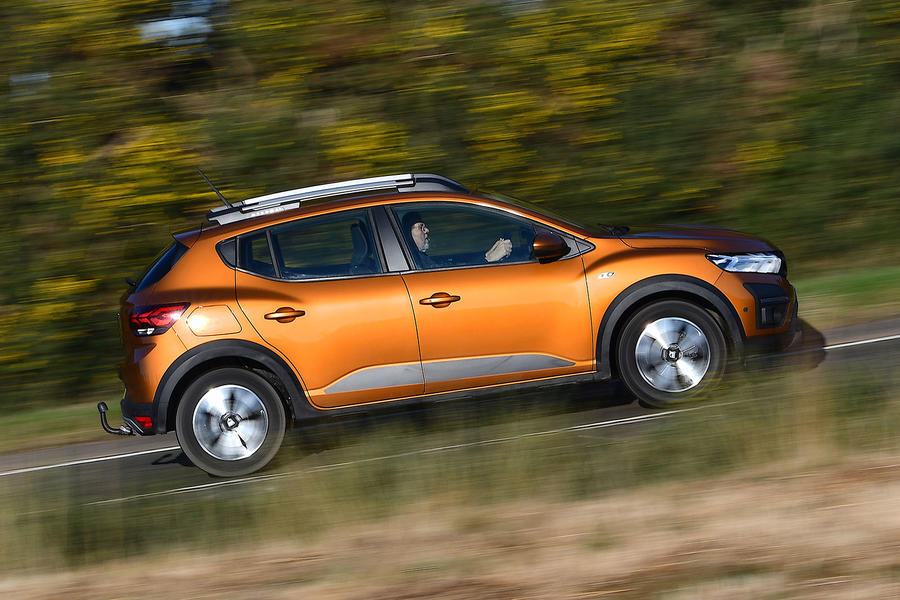
2021 market share: 1.07%, 2022 market share: 1.77%
Dacia is on a roll with the new Sandero and Jogger, with the Bigster (and maybe Spring EV) still to come. Bang on-trend for these painful financial times.
DS – up
2021 market share: 0.14% 2022 market share: 0.24%
DS is boasting of increasing its UK sales by 70% this year. That sounds good until you remember that, a decade ago, the Citroën DS3 alone took 0.8% of the UK market.
Ferrari – up
2021 market share: 0.06%, 2022 market share: 0.07%
Aston aims to emulate Ferrari’s financial success, but the point of Ferrari is that it stands on a unique heritage of 70 years of achievement on road and track.
Fiat – down
2021 market share: 1.37%, 2022 market share: 1.36%
Its future is coming into focus as a supplier of small, chic, lowcost models. No more Tipos.
Ford – up
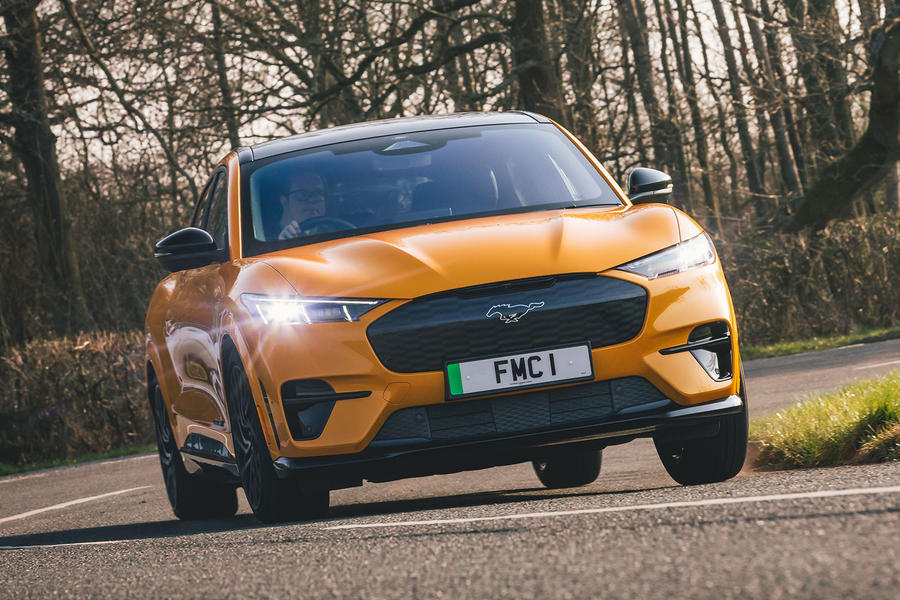
2021 market share: 7.06%, 2022 market share: 8.02%
Ford has retaken the top spot, but it’s a bittersweet win. The end of the Fiesta is nigh and the Focus won’t be far behind. Real losses for keen drivers.
Genesis – up
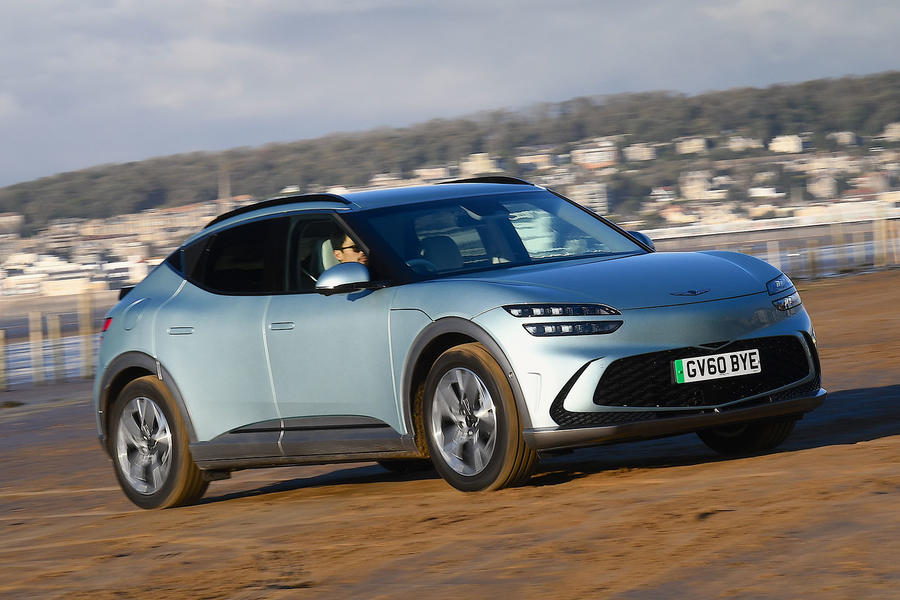
2021 market share: 0.01%, 2022 market share: 0.06%
The next Polestar or the next Infiniti? We’d bet the Koreans will get it right in the end, but a range of largely ICE models isn’t the ideal place to start.
Honda – down
2021 market share: 1.63%, 2022 market share: 1.62%
The good news is Honda has kept its share. The bad news is the UK now takes over 60% of Honda’s European sales. Is Europe still viable for it?
Hyundai – up
2021 market share: 4.23%, 2022 market share: 5.09%
A sharp recovery this year, helped by rising Tucson and Kona sales. Its share is very respectable – except junior brand Kia’s is even higher.
Jaguar – down
2021 market share: 1.15%, 2022 market share: 0.76%
The I-Pace may finish the year as Jaguar’s best-seller. It was meant to be the spearhead of Jaguar’s electric future, but it has been waiting four years for reinforcements to arrive.
Jeep – down
2021 market share: 0.27%, 2022 market share: 0.15%
Alfa Romeo’s sister brand in more ways than one. Great heritage, high awareness and microscopic market share.
Kia – up
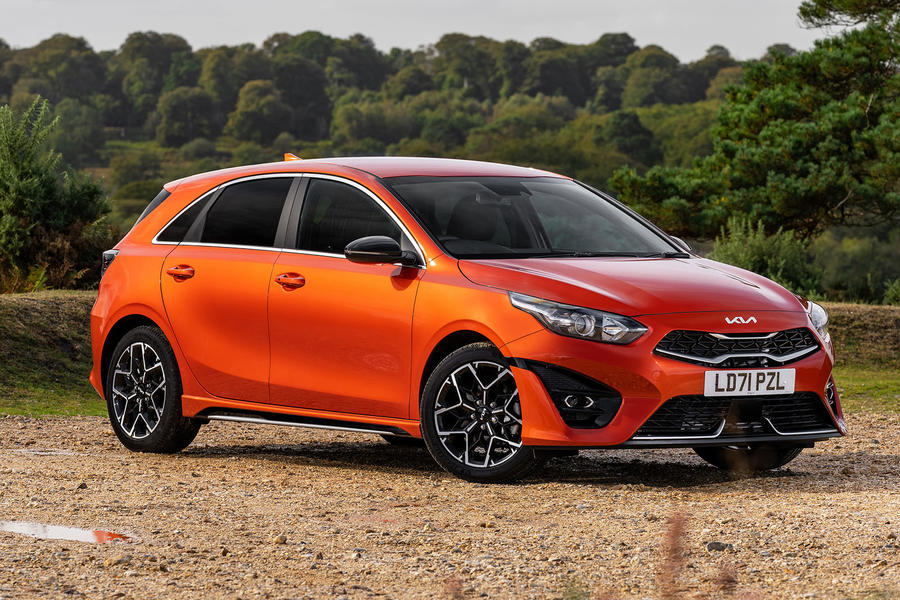
2021 market share: 5.51%, 2022 market share: 6.51%
A stellar performance. To give just one example, Kia could well end the year selling more C-segment cars than any rival.
Land Rover – down
2021 market share: 3.22%, 2022 market share: 2.73%
Down because the smaller cars are losing out (due to restricted production) and the new Range Rover and Range Rover Sport are in production ramp-up.
Lexus – down
![]()
2021 market share: 0.84%, 2022 market share: 0.61%
Lexus does a bit better in the UK than the rest of Europe, where it has a 0.3% share. Generally, it looks a bit lacklustre next to more interesting EV alternatives.
Lotus – no change
2021 market share: 0.01%, 2022 market share: 0.01%
The Emira is yet to get going, so Lotus had just 103 registrations in the first 10 months of 2022. It will need a strong 2023 to justify all that investment.
Maserati – down
2021 market share: 0.05%, 2022 market share: 0.04%
The new model intended to boost share is the Grecale SUV, a more upmarket version of the Alfa Romeo Stelvio. What could possibly go wrong?
Mazda – down
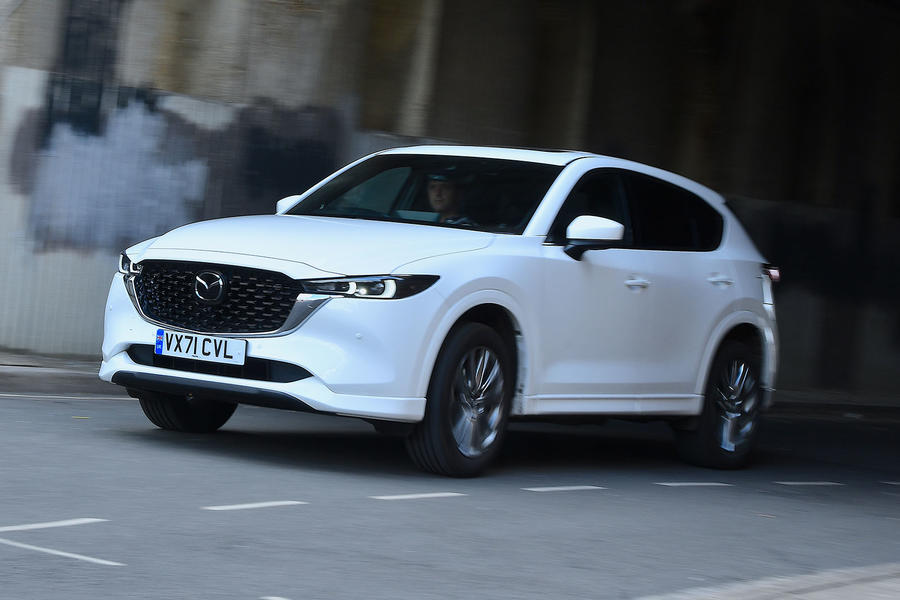
2021 market share: 1.57%, 2022 market share: 1.55%
The CX-5 and CX-30 SUVs are doing good business. However, Mazda’s idiosyncratic (if honourable) approach to EVs has fallen a bit flat; the MX-30’s limited range means equally limited sales.
Mercedes-Benz – down
2021 market share: 5.95%, 2022 market share: 5.15%
This is a rare case of a firm voluntarily surrendering market share. Mercedes is pulling out of smaller cars like the A-Class and B-Class to boost profit margins.
MG – up
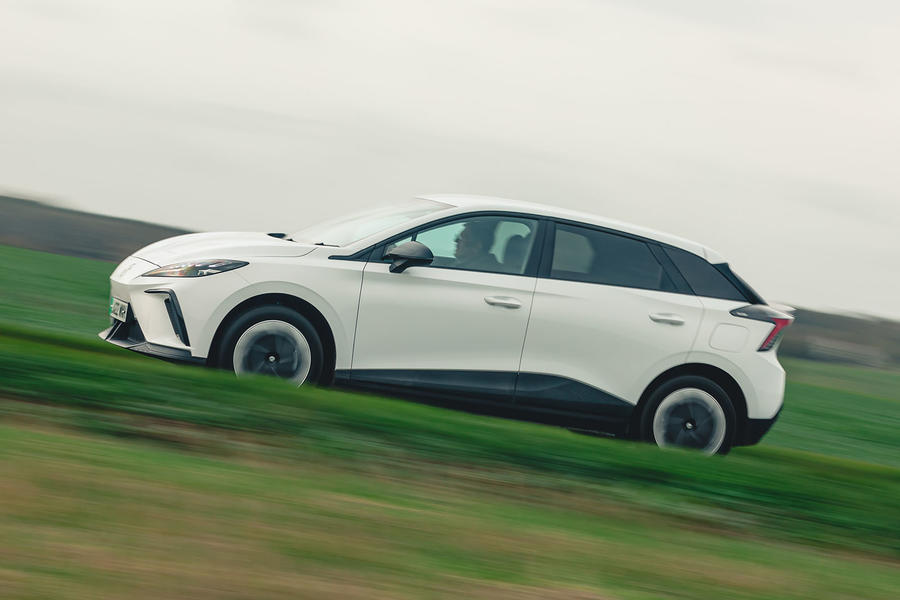
2021 market share: 1.86%, 2022 market share: 3.24%
The ZS is third in its segment and the HS is sixth – MG is now properly in the mainstream. Native brands are starting to seriously worry about the rise of the Chinese in Europe.
Mini – down
2021 market share: 2.78%, 2022 market share: 2.75%
The Electric will soon get an EV-dedicated platform, bringing it a much longer range. That should give the brand a major boost, as it’s perfectly positioned to be the urban EV of choice.
Nissan – up
2021 market share: 4.16%, 2022 market share: 4.63%
The Qashqai could well finish the year as the UK’s best-seller, but the Juke is suffering: once the class leader, it’s now fifth. The Ariya EV must do well if Nissan is to return past 5%.
Peugeot – down
![]()
2021 market share: 3.71%, 2022 market share: 3.42%
Once third in the UK, is settling down in mid-table. The 208 and 2008 are doing reasonably well, but the 508 is sinking into the quagmire reserved for big French cars.
Polestar – up
2021 market share: 0.25%, 2022 market share: 0.42%
Buying a Polestar 2 is as cool as buying a Tesla yet doesn’t make you cringe at Elon Musk’s outbursts.
Porsche – up
2021 market share: 0.83%, 2022 market share: 1.02%
In terms of share, Porsche is now a 1% brand. In terms of market cap, it’s the world’s third-most-valuable car maker, behind only Tesla and Toyota.
Renault – up
![]()
2021 market share: 1.81%, 2022 market share: 1.86%
Renault is now only just ahead of its junior brand, Dacia. The only bright spot is the Arkana coupé-SUV, which seems to be capturing buyers’ imagination.
Rolls-Royce – up
2021 market share: 0.02%, 2022 market share: 0.03%
This is the first time that Rolls has hit a 0.03% share. It is all about stately progress, after all. Owner BMW will be very happy with record global sales.
Seat – down
2021 market share: 2.62%, 2022 market share: 1.38%
After a very good period from 2017 to 2020, Seat’s share has collapsed. Cupra makes higher-margin cars in the same factory, so the Volkswagen Group seems to be effectively winding down the Seat brand.
Skoda – down
![]()
2021 market share: 3.37%, 2022 market share: 3.01%
Skoda has written a remarkable success story in good-value large cars. Both the Superb saloon/estate and the Kodiaq SUV are top of their segments.
Smart – down
2021 market share: 0.10%, 2022 market share: 0.08%
The #1 (the worst name since Volkswagen Sharan?) marks the start of Smart’s second life as a Chinese EV brand. Owners Mercedes-Benz and Geely will be hoping for far more success than it had in its first life.
Ssangyong – up
2021 market share: 0.09%, 2022 market share: 0.10%
Following three cycles of bankruptcy and new ownership, this SUV specialist has been bought by a Korean steel maker for approximately £225m – less than the cost of developing one new model.
Subaru – down
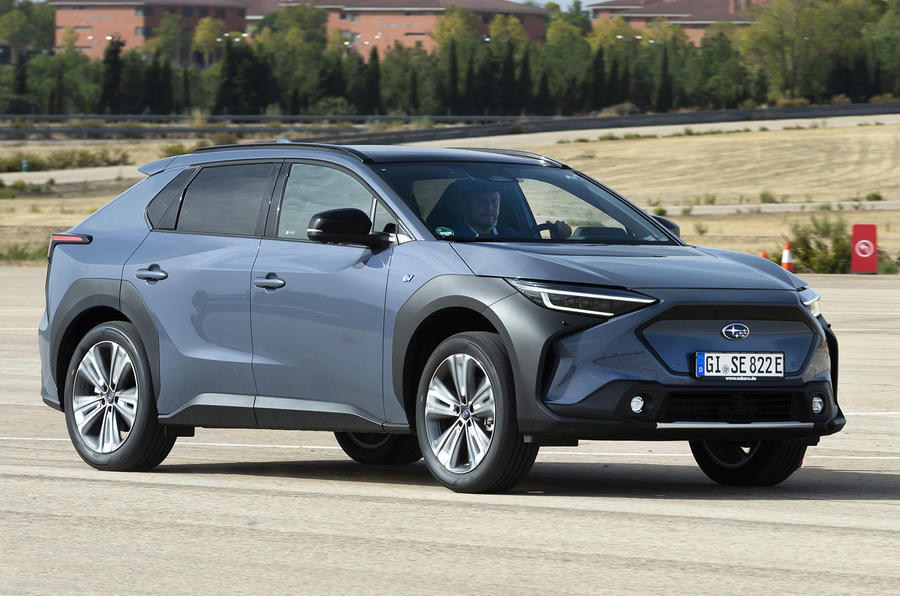
2021 market share: 0.13%, 2022 market share: 0.08%
We hope the UK’s dwindling band of Subaru loyalists is grateful for the firm’s efforts to make its cars available here. It’s hard to see how Subaru can make money on these volumes.
Suzuki – down
2021 market share: 1.27%, 2022 market share: 1.11%
The Vitara and new SX4 S-Cross SUVs are doing quite well, but the rebadged Toyotas (Across SUV and Swace estate) are, unsurprisingly, struggling. Apart from loyalty to a dealer, why buy the Suzuki version?
Tesla – up
2021 market share: 2.12%, 2022 market share: 2.57%
With the Twitter imbroglio, is Tesla now Musk’s side hustle? Its UK share is still growing, but Tesla is starting to come under pressure from EV rivals in China and, to a lesser extent, North America.
Toyota – up
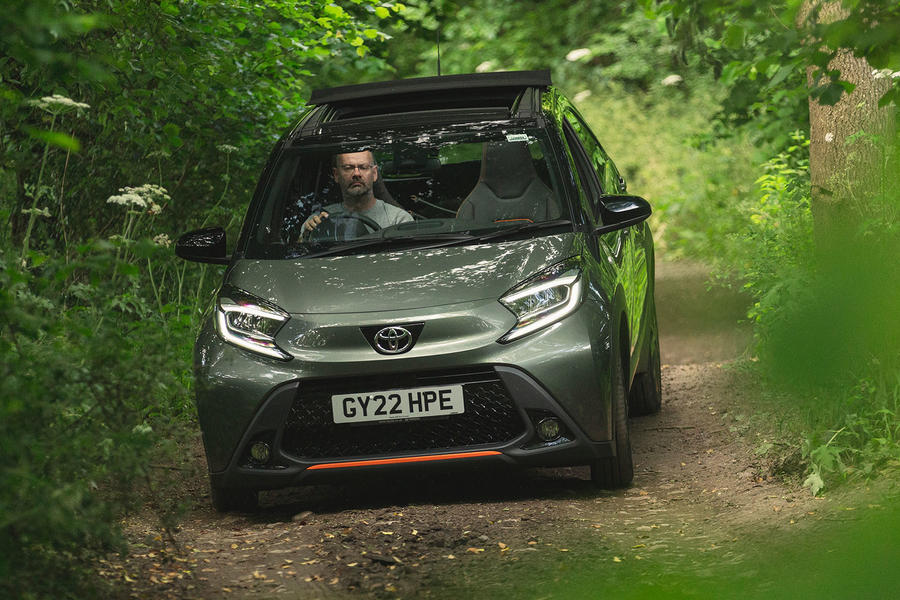
2021 market share: 6.13%, 2022 market share: 6.42%
Toyota has achieved record share thanks to the new Yaris Cross and Aygo X crossovers. It’s now in sixth position but is in a very close four-way race for third.
Vauxhall – down
2021 market share: 5.55%, 2022 market share: 5.41%
Market share is now stable after a decade of losses. The Corsa supermini and Mokka crossover are doing well, and the new Astra should make an impact next year.
Volkswagen – down
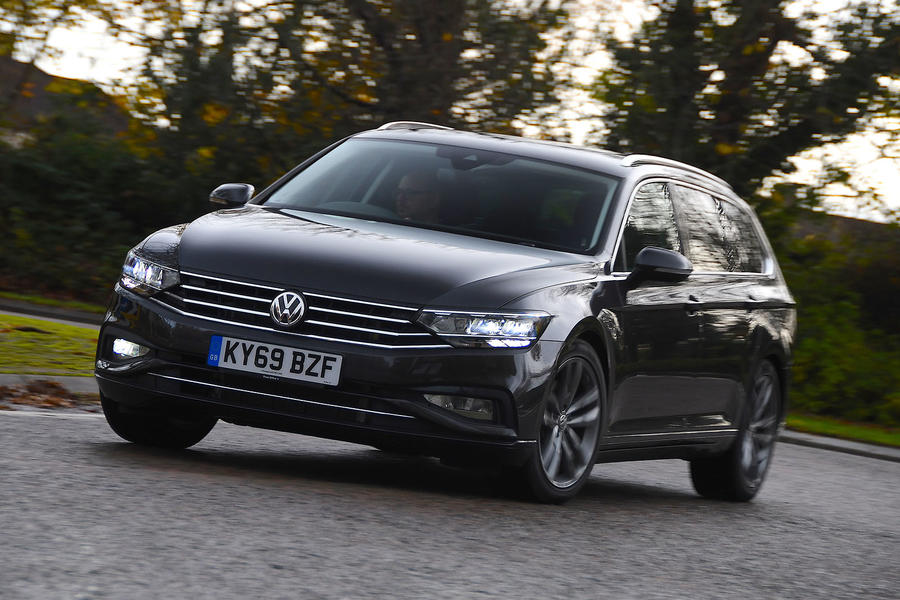
2021 market share: 8.97%, 2022 market share: 7.99%
Volkswagen’s scarce chips are going to more profitable Audis and Porsches (and more chip-hungry EVs). The ID EV range is doing reasonable business but has yet to set the world alight.
Volvo – down
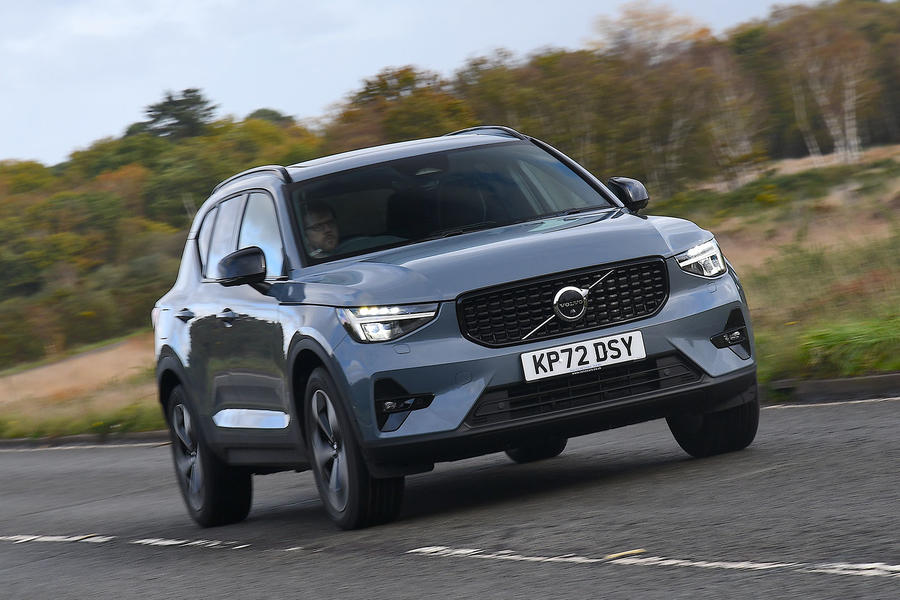
2021 market share: 2.93%, 2022 market share: 2.21%
SUVs now contribute 85% of Volvo’s orders. Overall sales are down because the XC40 has declined, but it’s still the best-selling premium compact crossover, ahead of the Range Rover Evoque
Source: Autocar
